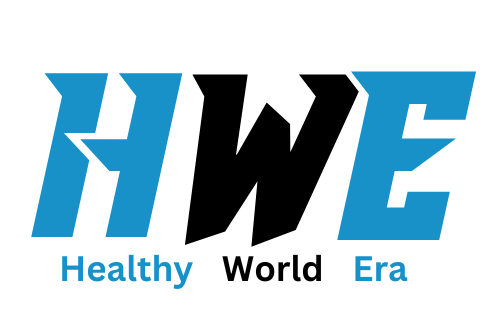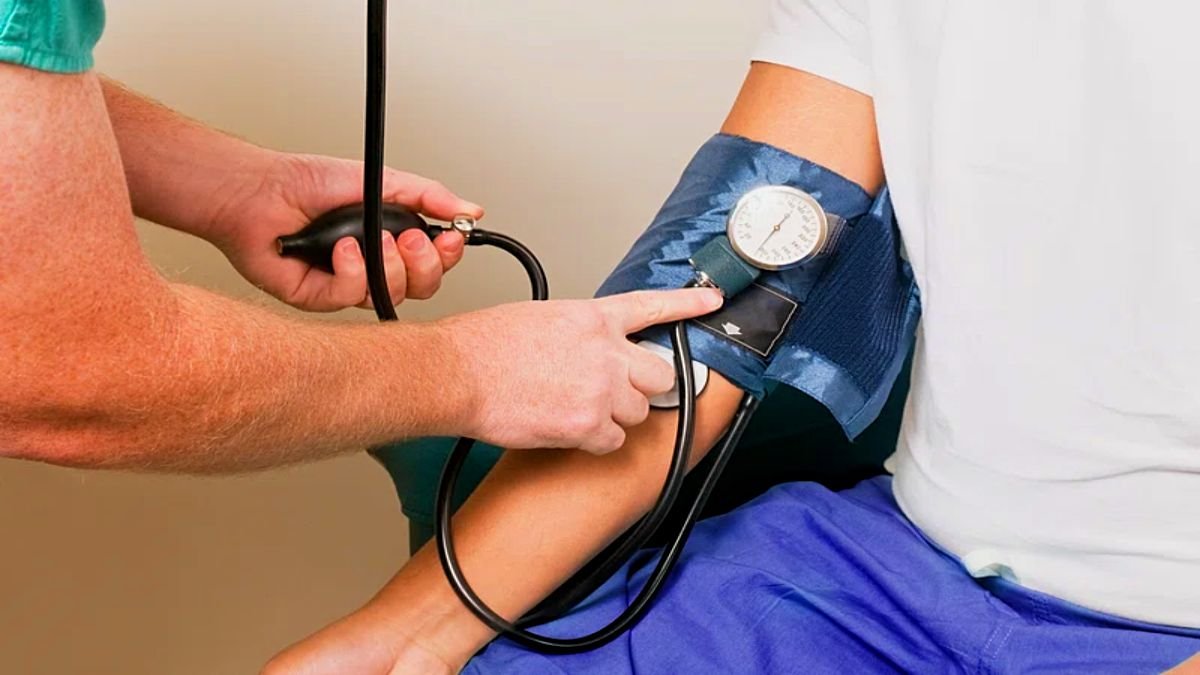Overview:
High blood pressure, also known as hypertension, is a common medical condition that affects millions of people worldwide.
They are often referred to as the “silent killer” because of their asymptomatic nature, high blood pressure can cause severe health complications if left unmanaged.
In this blog, we will delve into the causes, symptoms, risk factors, diagnosis, treatment options, and prevention strategies for high blood pressure.
Additionally, we will provide answers to frequently asked questions related to this condition.
Table of Contents
What is High Blood Pressure?
High blood pressure is a condition in which the force of the blood against the walls of the arteries is consistently elevated.
The heart pumps blood into the arteries, which carry it throughout the body. When the pressure in the arteries is too high, it can cause damage to the heart and blood vessels, leading to serious health issues such as heart disease, stroke, and kidney problems.
Blood pressure is measured in millimeters of mercury (mmHg) and is represented by two numbers: systolic pressure (the pressure when the heart beats) and diastolic pressure (the pressure when the heart is at rest between beats).
A normal blood pressure reading is typically around 120/80 mmHg. Hypertension is defined as having a systolic reading of 130 mmHg or higher, or a diastolic reading of 80 mmHg or higher.
Hypertension can be classified into two types: primary (essential) hypertension and secondary hypertension.
Primary hypertension has no identifiable cause and develops gradually over time, while secondary hypertension is caused by an underlying condition such as kidney disease or hormonal imbalances.
Symptoms of High Blood Pressure:
High blood pressure is often asymptomatic, meaning many people may not realize they have it until it is detected during a routine medical check-up.
However, when symptoms do occur, they may include:
- Headaches: Frequent or severe headaches are sometimes linked to high blood pressure.
- Dizziness or Lightheadedness: Some people may experience dizziness, especially if blood pressure levels are very high.
- Blurred Vision: High blood pressure can cause visual disturbances, including blurred or double vision.
- Shortness of Breath: Difficulty breathing may occur, particularly if high blood pressure has led to complications such as heart failure.
- Nosebleeds: Recurrent nosebleeds can be a sign of severely elevated blood pressure.
- Chest Pain: Chest pain or tightness can indicate complications like angina or heart attack.
- Fatigue or Confusion: Some individuals may feel unusually tired or confused due to reduced blood flow to the brain.
It is important to note that these symptoms can also be associated with other medical conditions. If you experience any of these symptoms, seek medical advice to determine the cause and receive appropriate treatment.
Causes of High Blood Pressure:
The exact cause of high blood pressure is often not known, especially in cases of primary hypertension. However, several factors contribute to the development of hypertension, including:
- Genetics: A family history of high blood pressure increases the risk of developing the condition.
- Age: The risk of hypertension increases with age as blood vessels lose elasticity and become stiffer.
- Lifestyle Factors: Unhealthy habits such as a diet high in salt and saturated fats, lack of physical activity, and excessive alcohol consumption can contribute to hypertension.
- Obesity: Being overweight or obese puts extra strain on the heart and blood vessels, increasing the risk of high blood pressure.
- Smoking: Tobacco use damages the blood vessels and accelerates the buildup of plaque, leading to hypertension.
- Excessive Alcohol Consumption: Drinking too much alcohol can raise blood pressure and cause long-term cardiovascular damage.
- Chronic Conditions: Medical conditions such as diabetes, kidney disease, and hormonal disorders can lead to secondary hypertension.
Risk Factors for High Blood Pressure:
Several factors increase the likelihood of developing high blood pressure. Understanding these risk factors can help individuals take proactive measures to reduce their risk.
- Family History: Hypertension tends to run in families, indicating a genetic predisposition to the condition.
- Age: Blood pressure typically increases with age. People over 60 are at a higher risk of developing hypertension.
- Gender: Before the age of 55, men are more likely to develop hypertension. After 55, women are at a higher risk.
- Ethnicity: People of African or Caribbean descent are more likely to develop high blood pressure than individuals of other ethnic backgrounds.
- Diet: A diet high in salt, fat, and processed foods can lead to hypertension. A diet lacking in potassium, calcium, and magnesium may also increase the risk.
- Physical Inactivity: Lack of regular physical activity contributes to weight gain and higher blood pressure levels.
- Stress: Chronic stress can lead to temporary spikes in blood pressure and contribute to the development of hypertension over time.
Diagnosis of High Blood Pressure:
High blood pressure is diagnosed through routine blood pressure measurements. A single high reading is not enough to diagnose hypertension; multiple readings taken at different times are required to confirm the condition. The following diagnostic methods are commonly used:
- Blood Pressure Monitoring: Blood pressure is measured using a sphygmomanometer, which consists of an inflatable cuff placed around the arm and a gauge that measures pressure. The reading is recorded as systolic over diastolic pressure (e.g., 130/80 mmHg).
- Ambulatory Blood Pressure Monitoring (ABPM): This method involves wearing a portable device that measures blood pressure at regular intervals over 24 hours. ABPM provides a more accurate picture of blood pressure fluctuations throughout the day and night.
- Home Blood Pressure Monitoring: Patients can use home blood pressure monitors to track their readings. This can help identify white-coat hypertension (elevated readings at the doctor’s office due to anxiety) and monitor treatment progress.
If high blood pressure is confirmed, additional tests may be conducted to assess the impact on organs and identify potential underlying causes:
- Blood Tests: To check for conditions like diabetes or kidney disease.
- Urine Tests: To detect signs of kidney damage.
- Electrocardiogram (ECG): To evaluate heart function.
- Echocardiogram: To assess the structure and function of the heart.
Treatment for High Blood Pressure:
The goal of hypertension treatment is to lower blood pressure to a safe level and reduce the risk of complications such as heart disease and stroke. Treatment options include lifestyle changes, medications, and regular monitoring.
Lifestyle Modifications:
- Healthy Diet: Follow the Dietary Approaches to Stop Hypertension (DASH) diet, which includes fruits, vegetables, whole grains, and low-fat dairy products. Reduce salt intake to less than 2,300 mg per day.
- Exercise: Engage in at least 150 minutes of moderate-intensity aerobic exercise each week, such as brisk walking or cycling.
- Weight Management: Losing even a small amount of weight can significantly lower blood pressure.
- Smoking Cessation: Quitting smoking improves overall cardiovascular health and lowers blood pressure.
- Avoid Alcohol: Avoiding alcohol can significantly reduce hypertension.
Medications:
Several classes of medications are used to treat high blood pressure. The choice of medication depends on the patient’s overall health and any other underlying conditions.
- Diuretics: Help remove excess sodium and water from the body, lowering blood pressure.
- Beta-Blockers: Reduce the workload on the heart by slowing down the heart rate.
- ACE Inhibitors: Prevent the formation of a hormone that narrows blood vessels, allowing blood to flow more easily.
- Calcium Channel Blockers: Prevent calcium from entering the cells of the heart and blood vessels, relaxing the vessels and reducing blood pressure.
- Angiotensin II Receptor Blockers (ARBs): Block the action of a hormone that causes blood vessels to narrow.
Disclaimer: Don’t take any medicine without consulting a doctor.
Regular Monitoring:
Patients with high blood pressure should regularly monitor their blood pressure at home and attend follow-up appointments to assess treatment effectiveness and make necessary adjustments.
Prevention of High Blood Pressure:
Preventing high blood pressure involves making lifestyle changes that promote heart health. Key preventive measures include:
- Adopt a Healthy Diet: Eat a diet rich in fruits, vegetables, whole grains, and proteins. Limit salt, sugar, and saturated fats.
- Maintain a Healthy Weight: Achieve and maintain a healthy weight to reduce the risk of hypertension.
- Stay Physically Active: Engage in regular physical activity, such as walking, jogging, swimming, or yoga.
- Avoid Alcohol and Limit Caffeine: Excessive alcohol and caffeine consumption can raise blood pressure.
- Manage Stress: Practice relaxation techniques such as deep breathing, meditation, and yoga to manage stress.
- Avoid Smoking: Smoking damages blood vessels and contributes to hypertension.
- Regular Health Check-Ups: Attend regular health check-ups to monitor blood pressure and detect any early signs of hypertension.
Conclusion:
High blood pressure is a serious medical condition that can lead to life-threatening complications if left untreated.
It is essential to monitor blood pressure regularly, adopt a healthy lifestyle, and seek medical advice if you have risk factors for hypertension.
With proper management and lifestyle changes, high blood pressure can be controlled, reducing the risk of heart disease, stroke, and other complications.
FAQs:
1. What is the normal range for blood pressure?
A normal blood pressure reading is typically around 120/80 mmHg. Blood pressure readings above 130/80 mmHg are considered high.
2. Can high blood pressure be cured?
While high blood pressure cannot be cured, it can be effectively managed with lifestyle changes and medications.
3. Are there any symptoms of high blood pressure?
High blood pressure is often asymptomatic. However, some individuals may experience symptoms such as headaches, dizziness, or shortness of breath.
4. How can I lower my blood pressure naturally?
Natural ways to lower blood pressure include adopting a healthy diet, engaging in regular physical activity, reducing salt intake, managing stress, and quitting smoking.
5. How often should I check my blood pressure?
It is recommended to check your blood pressure at least once a year if you have normal readings and more frequently if you have high blood pressure or risk factors for the condition.
6. Can stress cause high blood pressure?
Chronic stress can contribute to high blood pressure, as it may lead to unhealthy coping mechanisms such as overeating, smoking, or drinking alcohol.
By understanding and managing high blood pressure, you can lead a healthier life and minimize the risk of serious health complications.

